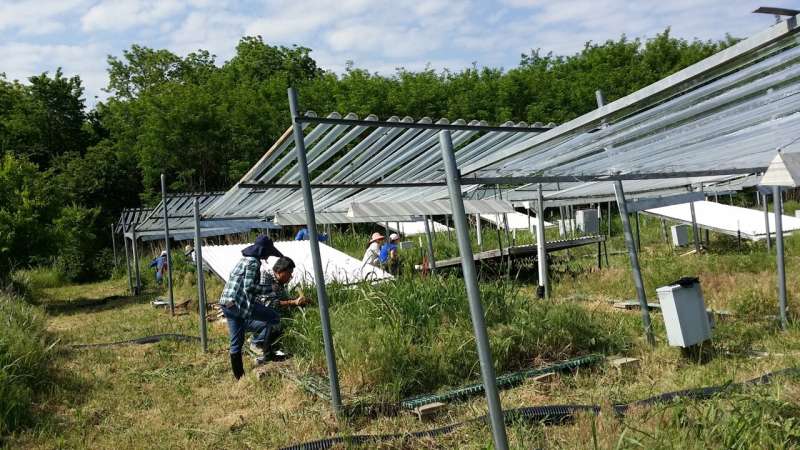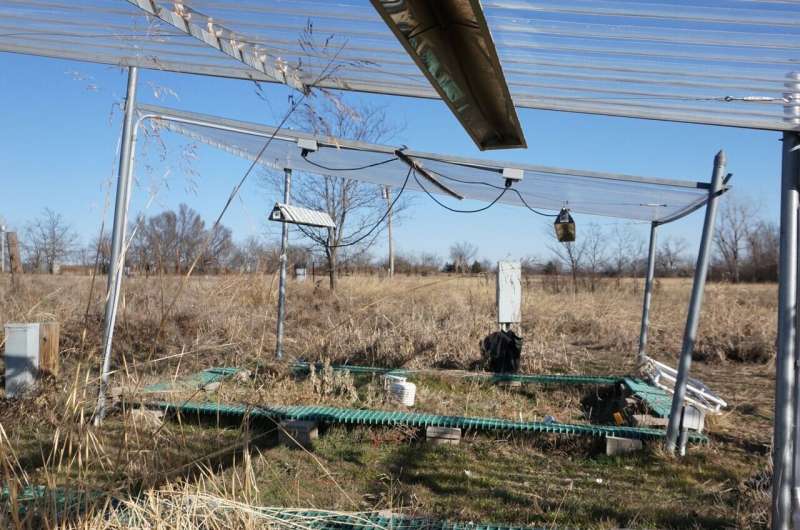A warming climate decreases microbial diversity, study finds

Researchers at the University of Oklahoma have found that the warming climate is decreasing microbial diversity, which is essential for soil health. Led by Jizhong Zhou, Ph.D., the director of the Institute for Environmental Genomics at OU, the research team conducted an eight-year experiment that found that climate warming played a predominant role in shaping microbial biodiversity, with significant negative effect. Their findings are published in Nature Microbiology.
"Climate change is a major driver of biodiversity loss from local to global scales, which could further alter ecosystem functioning and services," Zhou said. "Despite the critical importance of below-ground soil biodiversity in maintaining ecosystem functions, how climate change might affect the richness and abundant distribution of soil microbial communities (bacteria, fungi, protists) was unresolved."
Using a long-term multifactor experimental field site at OU, researchers with the university's Institute for Environmental Genomics examined the changes of soil microbial communities in response to experimental warming, altered precipitation and clipping (annual biomass removal) on the grassland soil bacterial, fungal and protistan biodiversity since 2009.
"Our findings show explicit evidence that long-term climate warming reduces microbial biodiversity in a field setting," Zhou said. "Additionally, this is the first study documenting the differential responses of both spore- and nonspore-forming microbes to climate warming, and this is the first study documenting the predominate role of warming in regulating microbial biodiversity."

"Our findings have important implications for predicting ecological consequences of climate change and for ecosystem management," he added. "In addition, since the effects of climate warming on biodiversity is primarily reduced moisture, it is expected that warming-induced biodiversity loss could be more severe in drylands—arid, semi-arid and dry-subhumid ecosystems that cover 41% of land worldwide."
Zhou says a better understanding of future warming-induced precipitation changes could be important in mitigating the warming-induced biodiversity decreases.
More information: Linwei Wu et al, Reduction of microbial diversity in grassland soil is driven by long-term climate warming, Nature Microbiology (2022). DOI: 10.1038/s41564-022-01147-3
Journal information: Nature Microbiology
Provided by University of Oklahoma



















